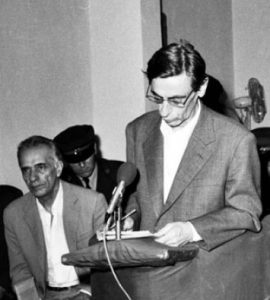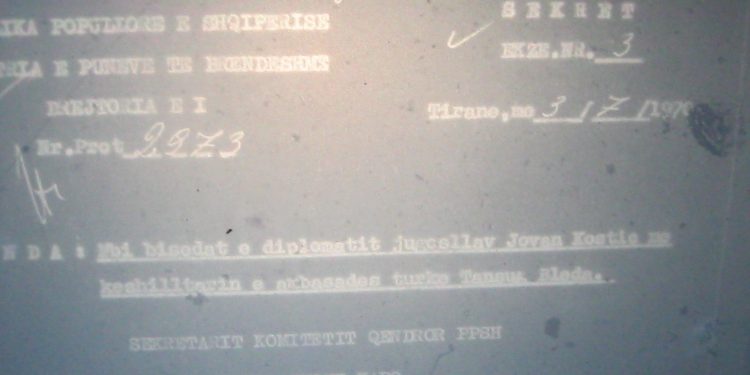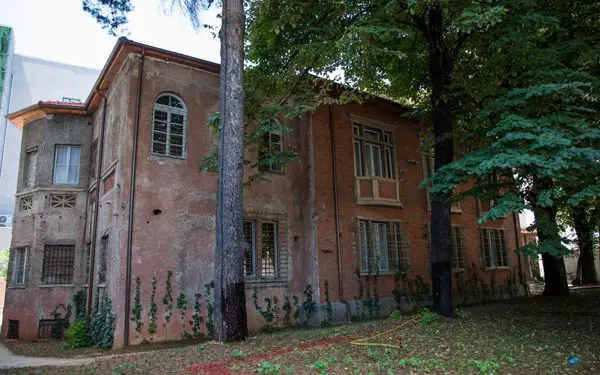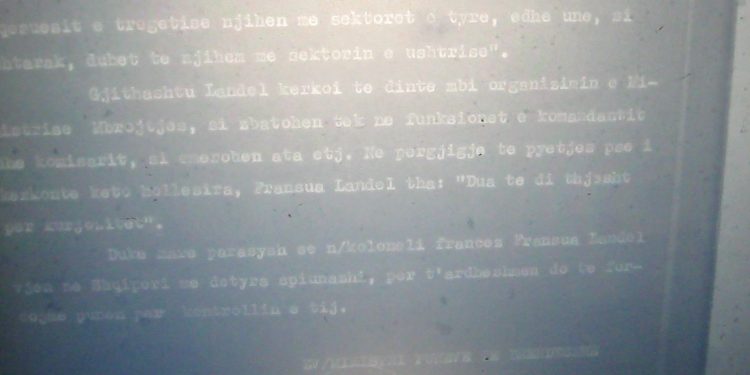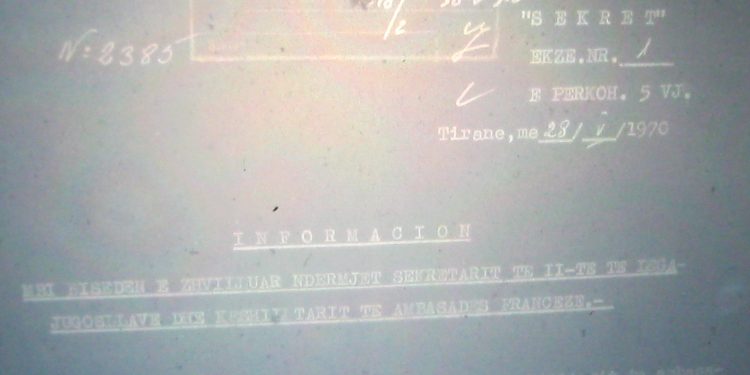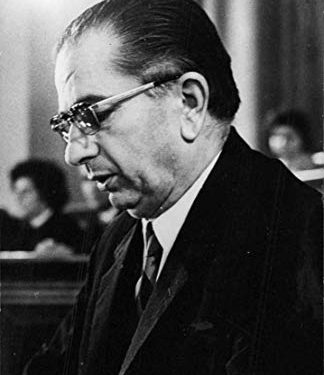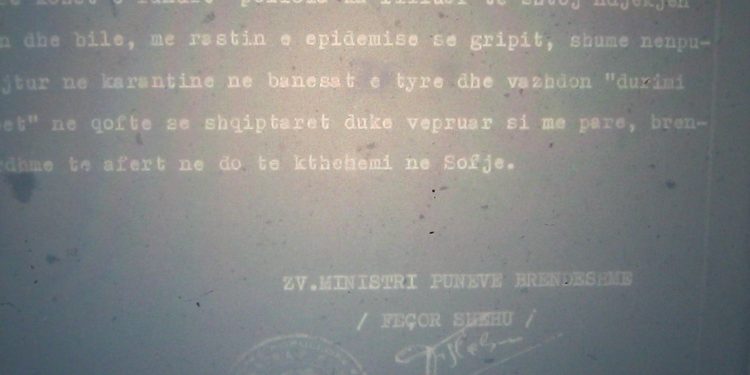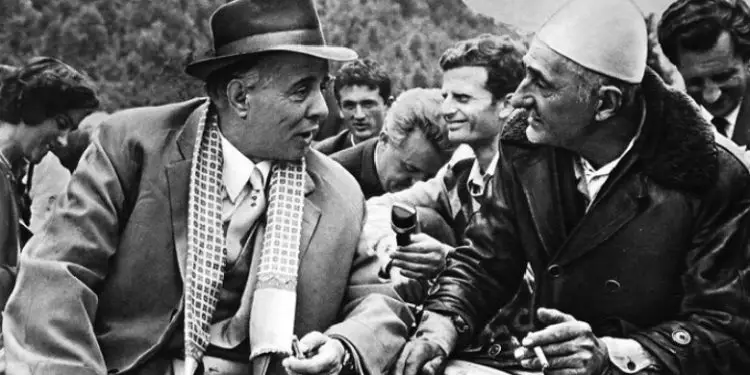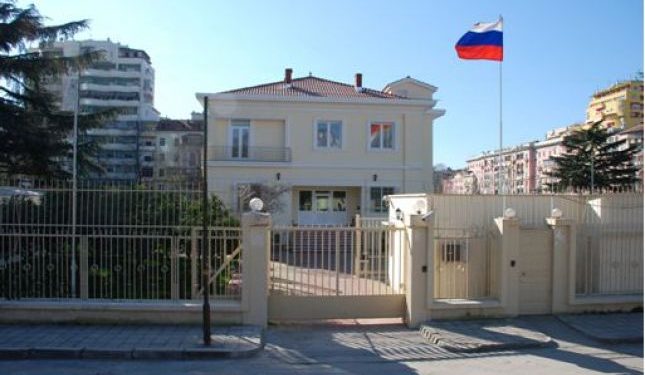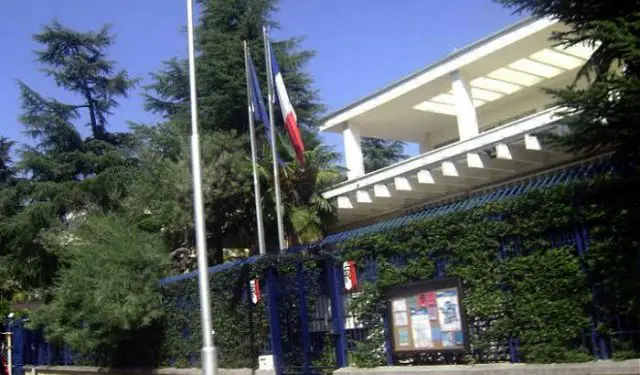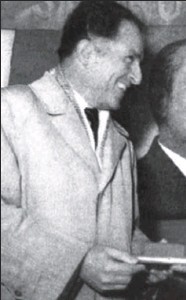Memorie.al publishes in full some of the secret reports of the Ministry of Internal Affairs sent to the Secretariat of the Central Committee of the ALP, especially Ramiz Alia and Hysni Kapos, regarding the issue of wiretapping and surveillance that the MIA bodies did to the embassies and foreign consulates in Tirana, in terms of their views and attitudes towards the communist regime of Enver Hoxha. The interception of foreign embassies and legations in Albania, whether Western or Eastern, would begin immediately after the end of the war and the seizure of power by Enver Hoxha’s communist forces. The first legations to be continuously intercepted and monitored would be those of the US, UK and the UNRRA mission in 1945-1946.
This would then be followed by the Yugoslav embassy, especially after 1953 (the year in which diplomatic relations were re-established), followed by the Italian, French, and finally the Greek and Turkish embassies in the 1970s. 80th. The secret documents and reports in question would be compiled by the top leaders of the Ministry of Internal Affairs and State Security, such as Kadri Hazbiu, Feçor Shehu, Kadri Gojashi and Rexhep Kolli, regarding the secret conversations of some of the Yugoslav diplomats. , French, Romanian and Turkish accredited in Tirana. The State Security instances were constantly afraid of a possible frontal military attack by the Soviet Union and the Warsaw Pact countries after the invasion of Czechoslovakia in 1968, a year which would mark the final exit of Albania from the Eastern Bloc, but also from a US and Western bloc intervention by the West to overthrow the Tirana regime. These secret reports of the 1970s show nothing but the usual paranoia of the communist regime and the State Security to constantly monitor the premises of these embassies and to eavesdrop on even the most detailed and insignificant parts of the conversations. ordinary diplomacy that was common at that time in foreign missions.
There would be numerous cases of arrests and deportations of some of the diplomats representing military, commercial and cultural attachés, who, in various ways (often staged by the State Security itself) with compromising materials and evidence for which would be accused of espionage and would be considered “non grata”. But all these interceptions and surveillance of the embassy buildings and the usual conversations of foreign diplomats by the bodies of the Ministry of Interior and the State Security, would show nothing but the rot and paranoid state of the Albanian communist state, which was constantly feared. various public reactions to the miserable economic situation, to the climate of political isolation of Albania from the outside world as well as to a possible military intervention from abroad that would lead to the overthrow of Enver Hoxha. But such a military attack never came.
THE PEOPLE’S REPUBLIC OF ALBANIA SECRET
MINISTRY OF INTERNAL AFFAIRS EXECUTION. NR. 1
FIRST DIRECTORY Tirana, on 12.7.1970
Nr. Prot. 4509
SUBJECT: On the French military attaché, Lieutenant Colonel François Landel
SECRETARY OF THE CENTRAL COMMITTEE OF THE ALP
SHOKUT HYSNI KAPO TIRANE
From 15 to 22.9.1970, the French military attaché, Colonel François Landel, came to our country. From his pursuit it results:
The main goal of François Landel was to collect secret data on military units and facilities during his movements through Albania. Thus, for example, on dt. 17.9.1970, posing as a tourist sought to enter the port of Durres and a unit of the Navy.
On September 18, 1970, Landel made a trip south. The purpose of this trip was for him to go to Pashaliman. Although this request was rejected by the Ministry of Foreign Affairs, he tried to enter Pashaliman, but was stopped. At the same time, during his stay in Vlora, he made provocative actions to escape our control. His stay on the coast, where he observed in the direction of Sazan and Karaburun, stood out.
Feçor Shehu: We will strictly monitor the actions of Lieutenant Colonel Landel
On September 20, 1970, he made a trip to the city of Korça. He walked fast all the way and stopped many times near military units and facilities. There are suspicions that he kept notes on the objects he saw, because in one case near Qukës, something was seen marking on the map.
On September 21, 1970, at his request, military attaché François Landel met with a staff of the Ministry of National Defense. Among other things, he said: “I am a friend of yours, a partisan who fought against fascism and was wounded. I came to Albania with good intentions, to strengthen our friendship. As a military I wanted to get acquainted with the life of your army, not with secret plans, because I am not a spy, but a friend and benefactor of Albania… For this I was also instructed by the Chief of Staff of the French Army… So, I would like the Ministry of the defense should build a program for me where an Albanian officer would be in the car with me… Just as trade representatives get to know their sectors, so I, as a military, should get to know the army sector”.
Landel also asked to get acquainted with the organization of the Ministry of Defense, how the functions of commander and commissioner are implemented in our country, how they are appointed, etc. Asked why he was asking for the details, François Landel said: “I just want to know out of curiosity.”
Considering that Lieutenant Colonel François Landel is coming to Albania with the task of espionage, in the future we will strengthen the work for his control.
DEPUTY MINISTER OF INTERNAL AFFAIRS
FEÇOR SHEHU
THE PEOPLE’S REPUBLIC OF ALBANIA SECRET
MINISTRY OF INTERNAL AFFAIRS EC. NR. 1
MINISTRY OF INTERNAL AFFAIRS
FIRST DIRECTORY
Nr. Prot. 1416
Tirana, March 16, 1970
SUBJECT: On some data on structural changes in diplomatic missions in revisionist countries
SECRETARY OF THE CENTRAL COMMITTEE OF THE ALP
SHOKUT RAMIZ ALIA
Recently, through our sources, some data have been obtained that speak of structural changes in the revisionist diplomatic missions, and specifically:
- The Attaché of the Turkish Embassy, Tansu Bleda, in a statement made to Ankara on February 2, 1970, says: “In a meeting, the charge d’affaires of the Polish Embassy in Tirana, regarding the news of our embassy in Sofia on the preparations of the Warsaw Pact countries to review their relations with Albania, told me: ‘The meeting will be held in Warsaw and the relations of the socialist countries with Albania will be analyzed in full. I believe that, for the first time, the issue of the abnormal situation of our representations in Albania will be touched and addressed.
As you know, currently the representatives of the Warsaw Pact countries in Tirana are at the level of workload. This gives the impression that ambassadors will be appointed in the future. In fact, we never intended for that. To confirm our decision in question, we from now on in Tirana will always keep busy with work. Our special missions, when not needed, are squabbles. We will reduce their number to a minimum. Given only the expansion of trade relations. I believe that these structural changes will be realized within 1970 ′ “.
- The translator of the Bulgarian embassy, Mariana Marinova, said: “Among other things, at a dinner with the Yugoslavs on March 19, the issue of the Poles was discussed. of the Polish embassy allegedly does not get along well with his colleagues and especially with those of the trade representation. For this reason, he has decided to remove from Albania all the employees of the trade representation and to keep at the embassy only one economic representative “.
Fechor Shehu: Bulgarian embassy translator Marinova promotes diplomatic intelligence network
- Regarding this work, the Charge d’Affaires of the Bulgarian Embassy, Nikola Carevski, said: “I will do my best, I will write, I will talk so that the Poles will never make this mistake. They will lose a lot, both politically and in trade… Especially here in Albania, trade representatives are needed more than anywhere. It is the trade representatives who go everywhere, organize lunches and dinners: only they can get in direct contact with Albanians, and as a result, through them they can gather information, whether of a political or economic nature. “Embassy diplomats are isolated and cannot get in touch with people.”
Even the charge d’affaires of the Yugoslav legation, Hërnjak, reacted by saying: “There is no interest in closing the Polish commercial representation”.
In recent days, rumors have been heard from Polish embassy employees that they are handing over the commercial representation building. The person in charge of work, talking about this problem, said: “We intend to vacate the building of the commercial representation as well as two apartments, as we plan to gather all at the embassy”. In another case, two State Property employees who went to the Polish embassy’s trade office to provide services prevention for 1970 were told there would be no need for any services, because it is thought that “by June to hand over the building of the commercial representation”./Memorie.al
DEPUTY MINISTER OF INTERNAL AFFAIRS
FEÇOR SHEHU




